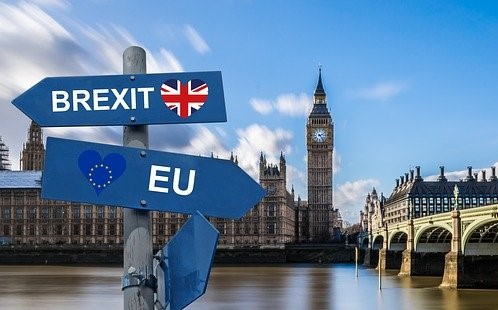This week’s update focuses on the findings from the study into collective uncertainty from Brexit driving UK emigration alongside the soon to be introduced points-based immigration system.
Both of these raise questions on the future of the human landscape in Dorset and the opportunities and threats these may bring.
The full report of the study by Dr. Daniel Auer and Daniel Tetlow, mentioned in last week’s update, has now been published. The study – Brexit, Collective Uncertainty and Migration Decisions – looks to understand whether the collective uncertainty from the 2016 referendum vote to leave the EU is a driver of people emigrating from the UK. Interviews with emigrants to Germany before and after the referendum suggests it was not actual socio-economic changes driving them to move, but perceived changes that would come about from Brexit. Some would argue this to be a reason for the Leave result, because of perceptions borne out of media and political broadcasting, and unfortunately when emotive messaging is anchored to things people feel passionately about, it’s very difficult to change such sentiments.
The study found that of the sampled emigrants, the “economic uncertainty and risk created by the Brexit referendum had a stronger influence on migration decision making than the uncertainty and risk that is inherent with migration”. This included people leaving well paid jobs in the UK and while they still haven’t found work eight months after migrating, they still believe taking this risk was better than staying and facing uncertainty in the UK. In fact, almost two thirds of the sample who migrated after the 2016 referendum agreed to either a pay cut or a pay freeze as part of their migration decision. The findings supported the hypothesis that it was negative perceptions of life in the UK after Brexit driving the decisions to migrate rather than positive perceptions of life in Europe enticing them to move.
While it’s hard to pinpoint how many people are leaving and why, should we be worried about this in Dorset coupled with the soon to be introduced points-based immigration system? With a strong tourism and international student sector and an expanding university, it should continue to attract this cohort of visitors when reviewing the further details statement. The current challenge to this, however, is restrictions from COVID-19. One challenge often stated by Dorset businesses is the ability to recruit skilled workers so the question is; will this improve or worsen as a result of the perceived impacts of Brexit, mentioned above, and the new immigration policy, which seeks to “attract the very best and brightest talent from around the world”? The Global Talent route was launched earlier this year under the current system for non-EU citizens to improve the UK’s attractiveness to highly skilled individuals with specialist skills, replacing Tier 1 (Exceptional Talent). This is designed to attract “recognised global leaders, and the leaders of tomorrow in science, humanities, engineering, the arts (including film, fashion design and architecture) and digital technology, enriching the UK’s knowledge, economy and society”.
Time will tell how the sentiments of the Brexit vote and points-based immigration system affect us in Dorset, but in the meantime is there anything else we can do to drive positive sentiments and positively influence people’s decision to live/work/visit here? One such message that springs to mind is the fairly recent news around Bournemouth being the fastest growing digital town in the UK according to a report by Tech Nation. That’s the kind of headline we want to see about the area and one that will positively impact the image and in turn increase awareness and interest.
We heard on 4 August about the decision-making algorithm to be scrapped for visa applicants, according to a letter from Home Office solicitors seen by the Guardian. It’s claimed the artificial intelligent system unfairly filters applications and the decision to no longer use it comes ahead of a judicial review brought about from the Joint Council for the Welfare of Immigrants (JCWI). This is topical with the review into the Windrush scandal where the Home Secretary accepted all the findings of the Wendy Williams Windrush Lessons Learned Review.
Dorset Chamber delivers a free of charge Brexit advice service to all businesses, funded by BCP Council and Dorset Council. For information and advice please contact us at gateway@dcci.co.uk / 01202 714800 or visit dorsetchamber.co.uk.
